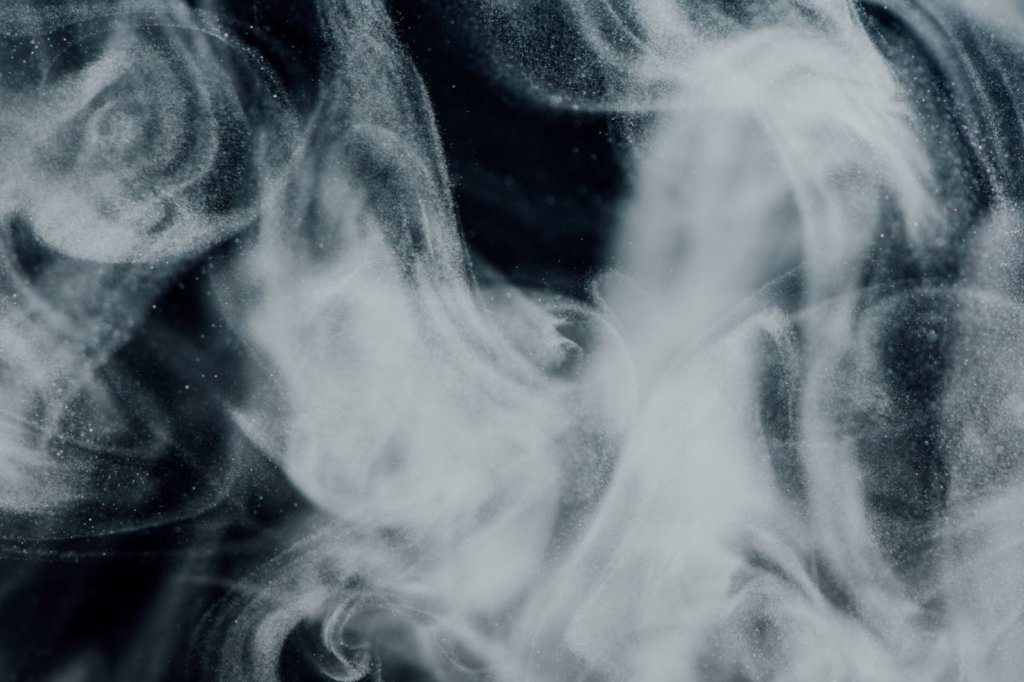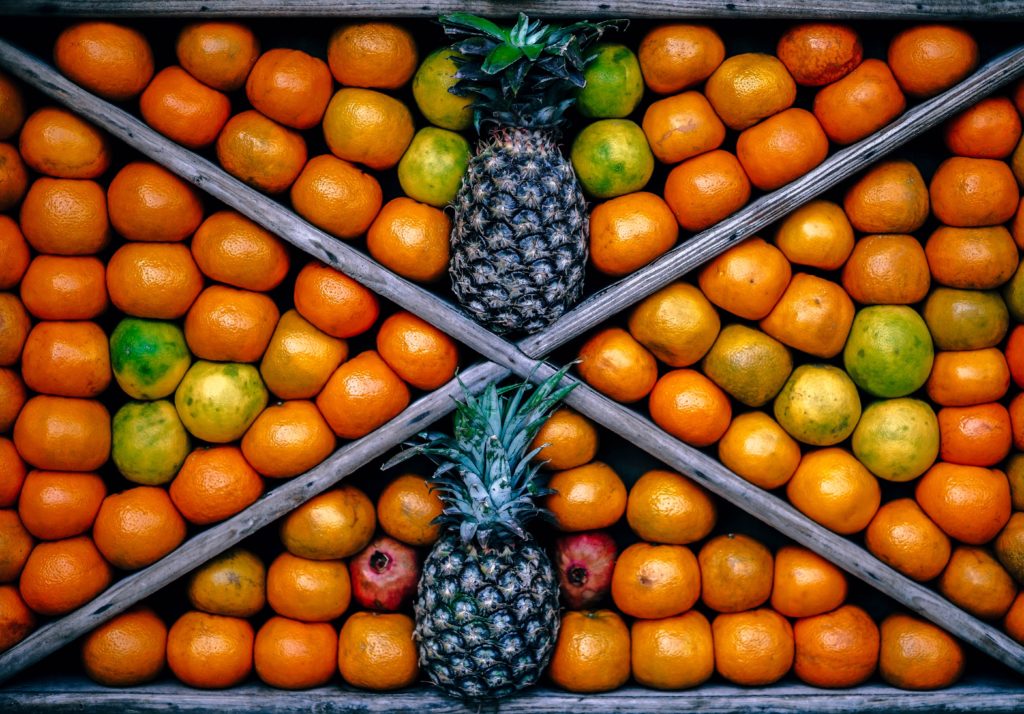When I’m going through a tough time, or the world around me is challenging like it is now, I don’t derive comfort from hearing, “This, too, shall pass.” I know some people do and I’m glad, but for me, when I hear, “This, too, shall pass” my response is, “When? Can you give me a timeframe? An estimate even?” But no one really knows, except for some stellar psychics, but I’ve never met any of those. If you have, can you give them my number? I have some questions.
Instead, what comes to mind right now is a quote that is misattributed to Winston Churchill: “If you’re going through hell, keep going.” Because honestly, what other choice is there? When life is grim, when smoke is so thick you can’t see across the street, when the sun is blocked from view and you think you’re on another planet the sky is so orange, what do you do? You keep putting one foot in front of the other over and over again until things change. And the only way I know how to do that is to borrow from another cliché prevalent in 12-step communities: one day at a time.

Not a fan of the smoke, but this is also an expression of Spirit. Photo by chuttersnap on Unsplash
I read an article in the Atlantic recently by Molly Jong-Fast that sums up this principle beautifully. She wrote:
Look, I’m as obsessed with “getting back to normal” as everyone else is, but I try not to worry about when that will be possible. I’ll lose it if I think in terms of hanging on until there’s a vaccine. Some people may find it helpful to tell themselves, It’s not forever. It’s just a few months. In my experience, though, when there’s no firm deadline for the end of an ordeal—and no one really knows when the pandemic will end—it’s better to focus on getting through the day. Life isn’t lived two weeks from now, or two months from now. Life exists in the moment and nowhere else.
Life exists in the moment and nowhere else. That means I can’t think about when it will rain, when I can open my windows again, when I can step outside without an n99 mask designed to filter out smoke. Instead I can focus on the moment, like the carrot I’m munching on while I type this, or my flowers swaying in the breeze.
I can also get quiet and touch the inner calm, the inner strength that lies within me and within everyone. The point of my spiritual practice is not to run away from the world, to search for a better, happier place, but instead to recognize the divinity present here, now. My spiritual practice affirms over and over again that I am an expression of an infinite, loving consciousness. That this body, this mind, this world is an expression of Spirit both beautiful and terrible.
My spiritual teacher says “God” is an acronym that stands for Generator, Operator, and Destroyer. That means God is not only the beauty in the world but also the ugly. And the reality is the cycle of life is a never-ending rhythm of creation, operation, and destruction. I don’t like it, I don’t wish for it, I still act responsibly with regards to my life and the lives of others, but can I have some perspective? Can I remember that God is here, too, in this hell? That’s the work anyway.
I dream of a world where we keep going in the most hellacious of circumstances. A world where we continue to take each day as it comes doing the next right action and then the next. A world where we remember God is not only the wonderful, but the terrible. A world where we realize that in the horrible, Spirit is there, too.
Another world is not only possible, it’s probable.
This week I experienced a breakthrough around impatience. Normally when I’m impatient, I roll my eyes and say, “Oh look. This again.” Or I stew in my impatience, allowing myself to feel all the irritation and frustration. When impatience bubbled up for me recently, instead I became curious. “Why am I impatient? What’s going on here? Are there other things at play?” Perhaps unsurprisingly, the answer is, “Yes.”
When I’m impatient, two other forces are at work. The first is scarcity – I think there’s not enough of whatever it is. If I’m waiting in line and feeling impatient, it’s because I feel pressed for time, for example. The second force at play is a lack of perspective. My career is a great example. I want to be a bestselling author, I want to touch a lot of people on a grand scale, to serve others in a big way using my words. Impatience comes in because I think if I’m not doing those things right now, I won’t ever do them. I get caught in the present moment in a bad way. A friend told me when her daughter skins her knee she’ll exclaim, “My knee hurts and it’s always hurt and it will always hurt!” When I’m impatient, I act like that.

There are multiple forces associated with impatience. Photo by Igor Ovsyannykov on Unsplash.
This week when impatience presented itself I asked, “What if most of my dreams will come true later? Is it possible they’re in my future?” and I felt better. As I’ve seen over and over again, for better or for worse, I have no idea what the future holds, so yeah, it’s possible I can still have what I want, just not right now. Furthermore, I have a lot of life left, I hope. I likely won’t drop dead in the next 30 seconds so maybe down the road the things I want will happen. What helps me here is thinking about past experiences. For many years I wanted to visit Italy. Every time someone mentioned Italy or shared pictures of their travels, envy and impatience overtook me. “I want to go to Italy too! Why hasn’t it happened for me?” And then in 2012, I finally visited the country in a grace-filled way better than I could have imagined. My dream did come true, but it took a while.
My spiritual teacher says that “whatever happens in this universe of ours is nothing but an expression of Cosmic desire or Cosmic will … when a human desire and His desire coincide, then only does the human desire become fruitful, otherwise it is a sure failure.”
That means when I align my desire and higher power’s desire, dreams come true. It also means when I’m impatient, I don’t recognize life is a long game, I hope. When I’m impatient, I’m thinking in terms of instant gratification as opposed to syncing my will with the divine’s. It also means I’m not recognizing the natural rhythm of life. The environment has seasons and so does life. In the dead of winter it’s tempting to believe spring will never arrive, but it always does, when the temperatures rise, when the snow melts, when the sun shines brighter. Dreams are like that too – they blossom when the environment is ideal. When I’m impatient it’s like going outside in 3 feet of snow asking, “Why aren’t the tulips in bloom?” They will bloom, but I have to wait, and that means patience.
I dream of a world where we realize everything takes time and just because something hasn’t happened yet, doesn’t mean it won’t. A world where we remember just like Earth, our lives and our dreams also have seasons. A world where we maintain perspective about the future and practice patience.
Another world is not only possible, it’s probable.
I’m reminded even when life doesn’t look the way we want it to, grace can still be found. On a macro level, there are some aspects of my life that are not how I’d pictured them, and it’s easy to sink into woe. At the same time, there can be grace in the gunk.
I’m not saying to avoid feeling woeful – everyone needs a good cry now and again – but it’s interesting for me to note in the midst of not-fun things I can experience wonder and delight. Life is complicated like that.
Last weekend I traveled to Philadelphia for a wedding of a dear friend of mine. It was beautiful and touching and sweet, but I anticipated that. What I didn’t anticipate were the other moments of grace that remind me there is a divine intelligence in the world, and that it cares about me.
Following the last dance at the wedding, the brides (it was a lesbian wedding) rushed out the door under a canopy of rustling wands that we, the guests, held above their heads. Therefore, I didn’t get to say a proper goodbye, which saddened me. The next day, while in the lobby, the elevator door pinged open and there stood one of the brides. I was able to say a few words before the door shut again and we went our separate ways. Quite literally in this case because she descended to the ground floor while I ascended to the fifth. An hour later, I took the elevator to the ground floor and ran into the other bride, my friend, while she waited for her elevator. We had a longer conversation and a proper hug goodbye. If I had left a few moments earlier or later, I would have missed her.
The same day, I trundled around Philadelphia with my rolling luggage, soaking up the sights. Due to losing my way, I arrived at the train station at 4:25, the exact time my train was scheduled to depart. I purchased my ticket and was informed the train was running two minutes late, which meant I just barely caught my train. And I do mean just barely. The train doors had already closed by the time I arrived, but the train conductor reopened them for me.
A few more things happened, like my flight arriving half an hour early even though we left later than our departure time. They aren’t huge things, and they don’t fix the macro issues in my life like my health or my finances, but they’re enough to remind me grace is here, too. I can have poor health and poor finances and still be taken care of. Furthermore, I didn’t orchestrate any of the things I experienced. I didn’t manifest it or attract it or visualize it or have any control in the matter whatsoever.
And that’s the thing about grace – it’s not rational, it doesn’t follow a formula. It just comes. My spiritual teacher says God’s grace is for all – both the virtuous and nonvirtuous. Nobody is unimportant or insignificant. Everyone is a divine child and grace is always with us, even in the gunk.
I dream of a world where we all feel graced. A world where we feel the love that surrounds us. A world where we know grace is not a reward for good behavior, it’s given regardless. A world where we find grace in the gunk.
Another world is not only possible, it’s probable.
Lately I’ve been thinking about the power of language. The way it builds bridges or constructs walls. And how it shapes our perspective, often in subtle ways. For instance, there is a huge difference in calling someone a rape victim versus a rape survivor. One is more passive, connoting power over, whereas the other connotes someone who endured hardship and continues to live.
Part of my musings were inspired by this article about George Lakoff. He suggests people vote with their values and thus words matter. For instance, there’s a different connotation between “federal regulations” and “federal protections.” Regardless of where a person falls on the political spectrum, it’s obvious to me words are powerful and shape the direction of a conversation and often the outcome.
It’s not only the words we use to describe something, its names too. Names mean something and the more we call a person their name, the more they embody it. For instance, in Sanskrit, if a person is named “Madhu,” which means “honey,” or “sweet,” they start to become more sweet. They develop the qualities of the name. Names are powerful, as we know, but often forget. What we call people matters. How we describe people matters. Both for the person and for us, because it determines the lens through which we view the person. For instance, I could look at a person and think “criminal” or I could think “disadvantaged.” Each will lead me down a different path. For the criminal, throw them in jail, make ’em pay. For the disadvantaged, provide help and resources.
It’s important to choose with care our words. I’m reminded of a yogic concept I’ve written about before: satya. It implies proper action of mind and the right use of words with the spirit of welfare.
My spiritual teacher says, “Humans are rational beings: They possess in varying degrees the capability to do what is necessary or good for humanity. In the realm of spirituality, such thought, word, or action has been defined as satya.”
I guess to me that means it is our responsibility to use language in such a way that it engenders the all-around welfare for everyone. It is our responsibility to use language so that we start moving together in a direction that means everyone is living better. Because language is powerful and the more we recognize that and utilize it for the benefit of all, the better off we’ll all be.
I dream of a world where we recognize the power of language and we use it to make lives better for everyone. A world where we use language to unite rather than divide. A world where we choose our words with care.
Another world is not only possible, it’s probable.
I asked a friend the other day how he maintains hope and faith when the whole world seems to have gone mad, and he told me he views life as a drama – there will be happy parts and sad parts and scary parts. He doesn’t expect life to be a smooth ride where nothing happens.
He also told me a particular scene we find distasteful could be pivotal to the story – in hindsight we may find certain actions were crucial.
I like his perspective – it helps me to detach a little and not become quite so dismayed at the events in the world. I’m not saying I no longer care, nor that we should sit back and do nothing. Rather, his perspective reminds me this is reality. I want everyone to be happy all the time. I want life to proceed in a straight line improving day by day. I want rainbows and sunshine and kittens prancing through fields all day long. But that’s not what we’re living in, and that’s never what we’ve lived in. Life is a series of ups and downs, twists and turns. And furthermore, there are good people and bad people, just like in any riveting tale. There are heroes and villains, and I hate to admit it, but the villains usually prompt the heroes to leave the house. If the villains weren’t engaging in some nefarious scheme, the heroes would twiddle their thumbs and maybe knit a scarf. Personally, I’d find that kind of story dull and would ask for my money back.
Similarly, real life is the same way. There are heroes and villains, there are wise advisers and fools. We all have our parts to play, but unfortunately, no one handed us a script or fed us our lines.
My spiritual teacher says, “When human beings bring something within the scope of their intellect, and by perceiving and observing it closely, can understand the cause behind it, this is called kriidá; and when the cause is beyond the scope of their thinking it is called liilá [or play]. Whatever the Macrocosm does is beyond the periphery of the human intellect, and that is why whatever He does is His liilá.”
My interpretation of this quote is a lot of stuff happens in this world. Some of it I will understand and some of it I won’t, and maybe never will. The stuff I don’t understand is liilá or play. My point of view is instead of agonizing over why this happened or why this didn’t happen, it’s better for me to take the mindset that life is a play, life is a drama, something I get to witness unfolding.
What I also believe to be true is ultimately the arc of civilization bends toward the beneficent. Ultimately things improve for all of us. However, getting there sometimes requires clash and conflict. Sometimes things get crazy and bizarre, like any good drama, before they are sorted out. It seems to me right now our society is in the middle of an important and intense scene, one that I’d like to believe is leading us somewhere better, but it won’t make sense until later on when the story plays out.
I dream of a world where we view life as a drama. A world where we realize the ups and downs are a part of life. A world where we understand we all have our part to play and we play it with gusto. A world where we keep doing our part trusting eventually the story will resolve.
Another world is not only possible, it’s probable.
I’ve heard before I can choose how I feel so I interpreted that to mean I can feel happy all the time. But you know, that’s simply not true. If my dog dies I can’t all of a sudden feel happy. I’m an emotional being with emotional responses so I’m going to feel all of my feelings. It occurred to me today, however, I can change my perspective on a situation. That certainly is a choice.
This weekend has not unfolded AT ALL how I expected: unexpected houseguest! Little to no sleep! Crazy busy! I really thought I was going to spend this weekend sleeping in late and watching Netflix. Walking down the street this morning I started to feel resentment my weekend hasn’t even closely resembled that. What about all my sleep?!? What about all my rest?!? Then I heard an expression ringing in my ears: “Resentment is like taking poison and waiting for the other person to die.” Aw shucks. Instead of whitewashing my feelings I changed my perspective: perhaps even though it’s not what I wanted, it’s what I needed. I got to be of service this weekend helping out my best friend. We hung out in a way we haven’t for months. Someone else made me dinner and washed my dishes and I got to play with a video camera. I laughed and relaxed and released a whole lot of tension. And I still have tomorrow.
This post probably isn’t very profound, but it just occurred to me my feelings are my feelings: I don’t need to change them or mitigate them or do anything except feel them. My mind though? That is a completely different story. I can absolutely choose to think differently even if I cannot feel differently. I can absolutely see the bright side of everything. I can absolutely believe God is doing for me what I cannot do for myself. I can absolutely aim for a broader perspective. There are things I can change and I choose to change them.
After reflecting on my day, I’m closing it feeling gratitude instead of resentment. I hung out with my bestie! I saw my favorite singer! I watched Kung Fu Panda 2! I filmed chase scenes with my neighbor! These are not horrible things. In fact, these are pretty awesome things. And that’s the beauty of perspective: it makes everything better.
I dream of a world where we change our perspective. A world where we see the bright side of everything. A world where we feel our feelings and change our thoughts. A world where we accept things as they are and change what we can. A world where we live, love and let go.
Another world is not only possible, it’s probable.


